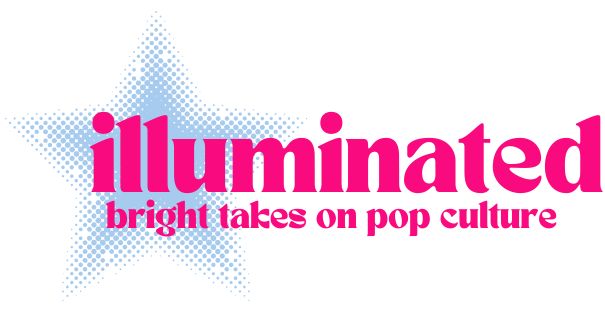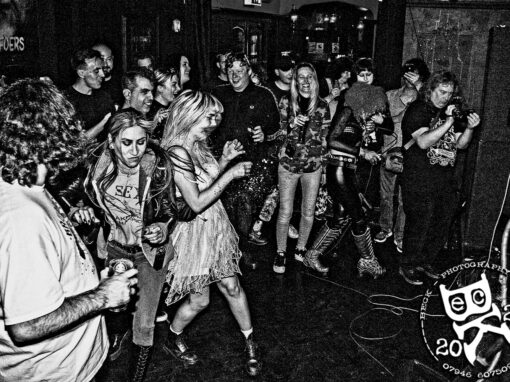Image by charlesdeluvio from Unsplash
In the wake of the new Peppa Pig baby sister being introduced to the show people have turned on the pig we all grew up watching. Videos are going viral sharing their hatred for the cartoon, but why?
Mummy Pig the popular cartoon mother of Peppa Pig has divided social media after announcing her pregnancy and giving birth to Evie. The original pregnancy announcement, which was broadcast on Good Morning Britain, has been criticised by people who worry she only had the baby for views and should focus on Peppa and George. “I just feel she is only having another baby for content, and I have an issue with that”, one user wrote. “Peppa has behavioural and anger issues, George is not speaking, but she has a whole baby on the way. Mind u, them kids are sleeping in one room,” another said.
Despite being a made-up cartoon, she is receiving the same hate as Mummy Bloggers and celebrities on social media, who are taking the arrival of the new baby extremely seriously. Another criticism was for having the baby privately, rather than through the NHS after an image of them in front of St Mary’s Hospital, the luxury maternity ward where the Princess of Wales gave birth was published.
Peppa has been a controversial topic online before, as some parents have been banning their children from watching the show because they believe she is a bad influence. However, the viral announcement became a hot topic and fuelled a new wave of hate and comedy content on TikTok. Teens and young adults started to express they think Peppa is ‘whiney’ and a ‘brat’ after she walked in on the announcement and stole Mummy Pig’s ‘thunder’, but why has a cartoon fictional pig caused such a strong reaction?
When Peppa ran onto the screen as Mummy Pig was announcing the pregnancy ‘live’ this led to a lot of people hating on her as they thought she ruined the announcement, despite the segment being already animated and fake. The idea that people treat fictional characters and their actions as real could have contributed to the hatred.
“In someways it doesn’t seem much different to take Peppa Pig and treat her as a real person,” Dr Gerardo Viera a lecturer in Philosophy of Science at the University of Sheffield says. “The cartoon aspect of it maybe makes it a little bit sillier, in general we do engage with fictions in a way where it feels like we’re engaging with a real person.” With his teaching and research focusing on Cognitive Science, which is a way of studying the mind that sits part way between philosophy, psychology and neuroscience.
Sophia Rascoff, who used to be a member of Forbes business council and has written pieces on social media and trends, believes that Peppa being a fictional character also contributed because it is easier to hate on someone who is not real. “Perhaps this is less harmful because it is not actually directed at a real person and so it is easy to express negative opinions,” Rascoff, who is currently studying at Harvard and has taken classes on the history of pop culture, says. “And also, safer because it is less cancellable almost.” You are less likely to get into trouble online for criticising a cartoon rather than a real child.
Despite people hating on her because they see her as real, or find it easier, how did the hatred begin? In the show there are often times when Peppa can be seen to treat her family and friends poorly, for example commenting on her father’s weight. This led to parents thinking she is a bad example and Gen Z, who grew up watching the show, agreeing.
Barbara Milford a retired speech and language therapist says: “They do hear and can act upon what they hear and sometimes if a child says something or answers back, they might say ‘well Peppa Pig does it’ because they watch parents and characters on television and that’s how they learn what is okay.”
Although children copy what they hear and it can create a good learning experience, children’s speech often moves too fast to be seriously affected. “They can move so quickly with their language that I don’t think they take it all on board, they listen, they enjoy it and then move onto the next thing,” Barbara Milford says. “I definitely believe that what you let your children watch is very very personal for your own reasons.”
Keri Shipley a primary school teacher for high special educational needs children and mother of three agrees that children pick up on what they hear, but it can be an educational experience. “It is finding that balance with how much tv and screen time they have to then how much communication they have with adults and other children,” she says. “That is the only way they can develop sharing skills and things like that is through practice because you can’t get that through a tv.”
Clearly Peppa Pig is disliked online, regardless of whether she is a bad influence or not the show is still questioned. “I do think Peppa Pig does get a bad rep sometimes, I never personally found it that bad, but its again having that balance of watching various things,” Keri Shipley says.
Jenny Reid and Rosie Dymond who are trained non-directive play therapists and manage Apple Tree Centre in Sheffield, believe that Peppa Pig can help model behaviour through conversations in a positive way. “We put a lot of emphasis on accepting and naming feelings, so it might be that they could watch an episode of Peppa Pig with their child then talk about how they feel,” Rosie Dymond says.
“It depends on what the family situation is, I would never say that per say Peppa Pig was a bad influence if a child is growing up in a warm loving securely attached family relationship,” Rosie Dymond says. “I would never want to invalidate any parents concerns and all parents do their best to make decisions in their own child’s interest,” Jenny Reid added. So why do people come together to hate on her, when it is just a children’s cartoon after all, and should you feel guilty for getting involved?
Dr Viera believes that when people start coming together online to hate on something it triggers a group mentality. “If you and I both find the same things funny that means in some way or another we’re thinking about the world in the same way, or we’re part of the same team, we have similar sorts of values,” he says.
Rascoff agrees that by engaging there is a natural opportunity to become part of a group. “I think it really does have to do with wanting to feel connected and like you’re in on the joke, and whether it’s because you have your own fun spin on it or its just using a trending audio to make the same video everyone else did,” she says.
With more people engaging and the videos reaching millions of views it can also be said that some people are just participating for views and likes and they do not really care. Viera says: “That sort of video sounds like a really easy way to like key into this thing that lots of people find funny or amusing or just kind of weird that draws their attention.”
Rascoff Says: “We know that what gets more engagement are things that are emotionally provocative or polarizing and so if you have a negative take on something social media is a very easy place to share that and it’s a way to get more engagement and more views and more comments.”
“If I post a video that you vehemently despise and disagree with and you want to tell me I’m wrong, then you’re going to comment.”
Although people are contributing for the virality there are some social media users, who genuinely care about the situation as well. “I suppose people can be genuinely curious about the gender of the baby, but I think they also want to talk to people online about this. It’s a means to engage in further conversation perhaps,” Rascoff says.
There are also the people that feel disappointment by the change in the show because they grew up watching it, there’s a sense of nostalgia. Viera says: “Nostalgia is this funny emotion we have, it’s not clear whether nostalgia is the emotion or the memory plus the emotion, so when we feel nostalgic for something it’s this kind of funny bittersweet melancholic sort of feeling where there’s something nice from the past but somehow its gone.”
“It still feels like it was a formative component of who you are and you can understand this rage that people feel even if they’re never going to watch the cartoon again, still something that was formative in their life has been destroyed and you can imagine why that would be painful or unpleasant or just annoying in all sorts of different ways,” he says.
With the new season starting soon, we can predict that there will continue to be TikTok videos made about the situation. People were guessing the gender, name, and father, and according to our experts there are various reasons why people participate. Whether you are in on the joke, a concerned parent or just find her annoying according to our experts that is okay. What reaction do you think the cartoon pig will have next?
For more TV and Entertainment stories click here: https://illuminatedmag.co.uk/tv-and-entertainment/






